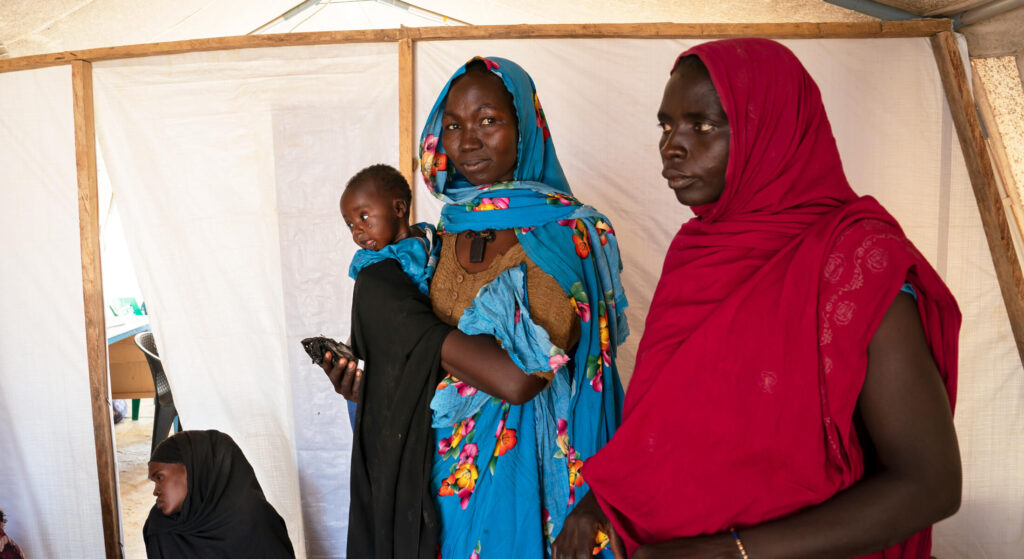Since the outbreak of civil war in April 2023, tens of thousands of Sudanese refugees have arrived in Chad each month, with more than 878,000 seeking shelter in Chad as of late September 2025. They shelter in refugee camps—including Dougui, where our teams provide integrated healthcare and nutrition services to refugees, returnees and host communities. International Medical Corps first began operating in Chad during the 2004 Darfur crisis, and when civil war erupted in Sudan in April 2023, we resumed our work in Chad, both to supply our mission in Sudan and to help refugees seeking safety in Chad.
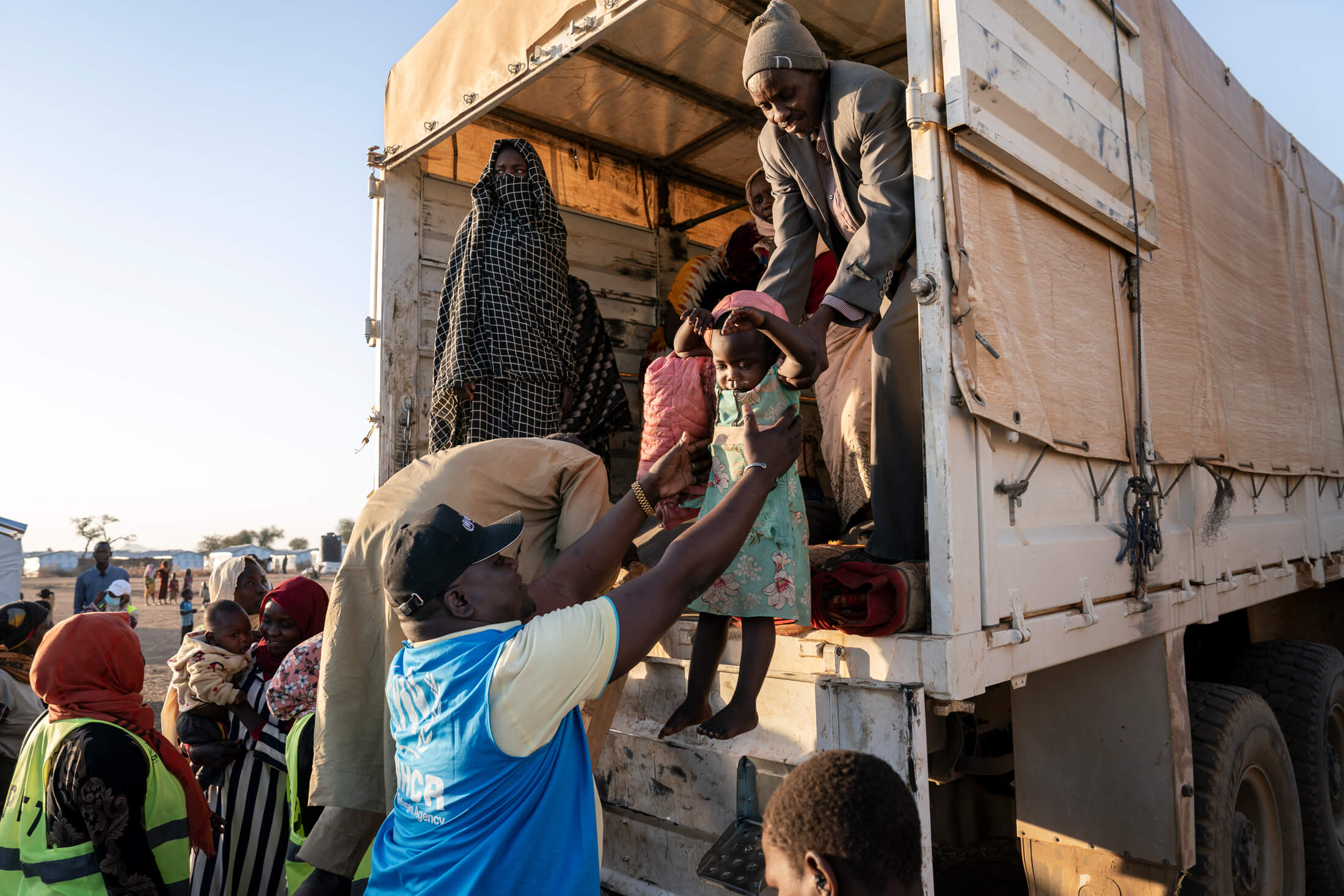
Caring for Babies
At the heart of our work in Chad is the Dougui health centre, where we offer free, lifesaving care to those affected by the conflict. At Dougui, we provide emergency primary, maternal and child healthcare, as well as mental health, food security and nutrition services. Among those services are the routine vaccinations we offer at no cost to Sudanese refugees.



Aziber’s Story
One refugee who received aid at the Dougui health centre, Aziber Asadiq Mohamed, arrived at the refugee camp after a harrowing journey. In April 2023, when the civil war started in Sudan, soldiers were going door-to-door and demanding money from civilians in Aziber’s town. “If you didn’t have any, they would shoot you,” Aziber says. Because he had no money to offer them, the soldiers shot Aziber in the legs.
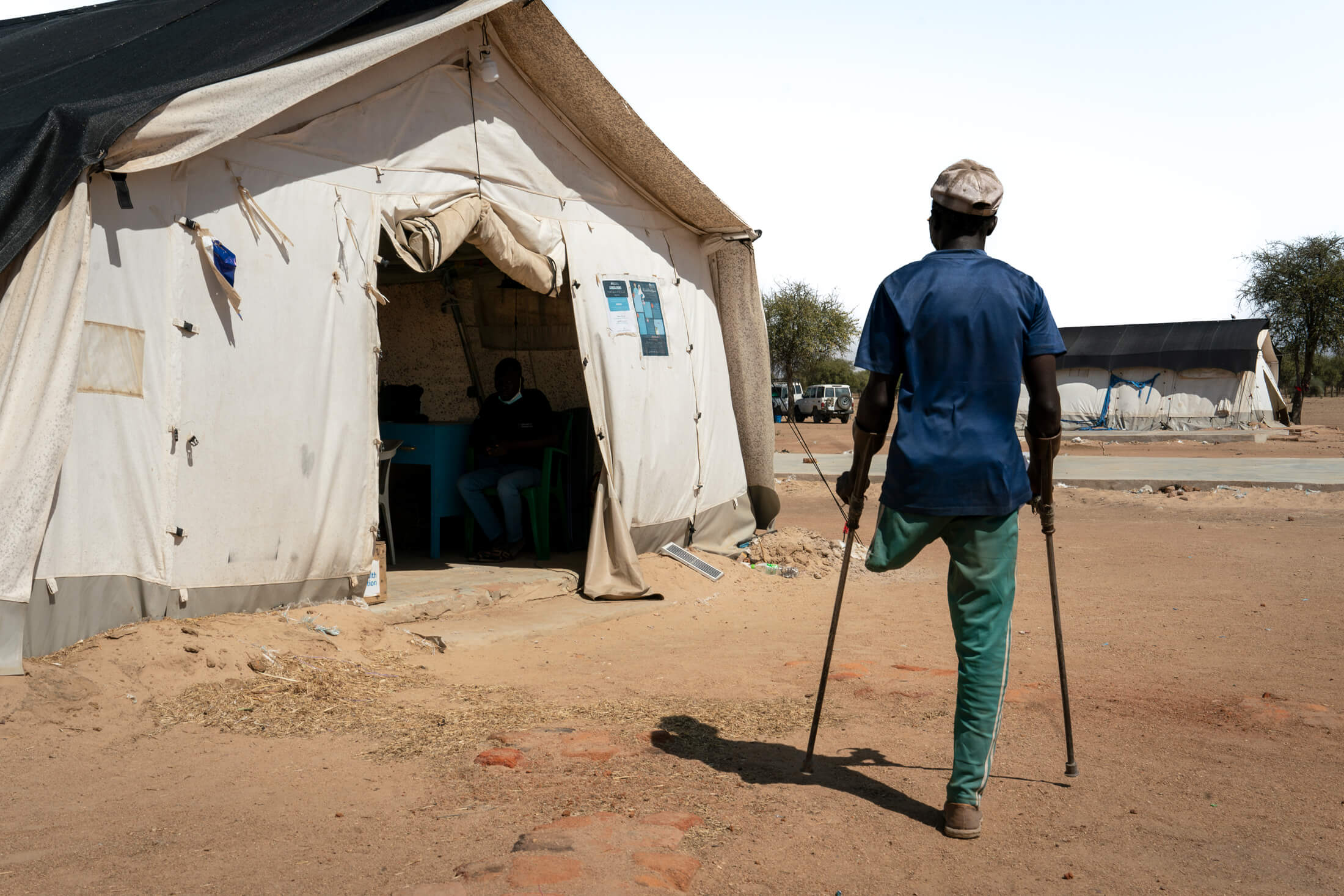
Soon afterward, Aziber’s entire family fled their home, while Aziber awaited medical care at a nearby hospital. The hospital was so overwhelmed with patients that Aziber had to wait three days to receive medical care, despite the severity of his injuries. By the time hospital staff finally got to Aziber, their only option was to amputate— a rushed procedure that left his leg severely damaged, with bone exposed. When soldiers invaded the hospital, Aziber and most of the other hospital patients were forced to escape in the hopes of finding safety.
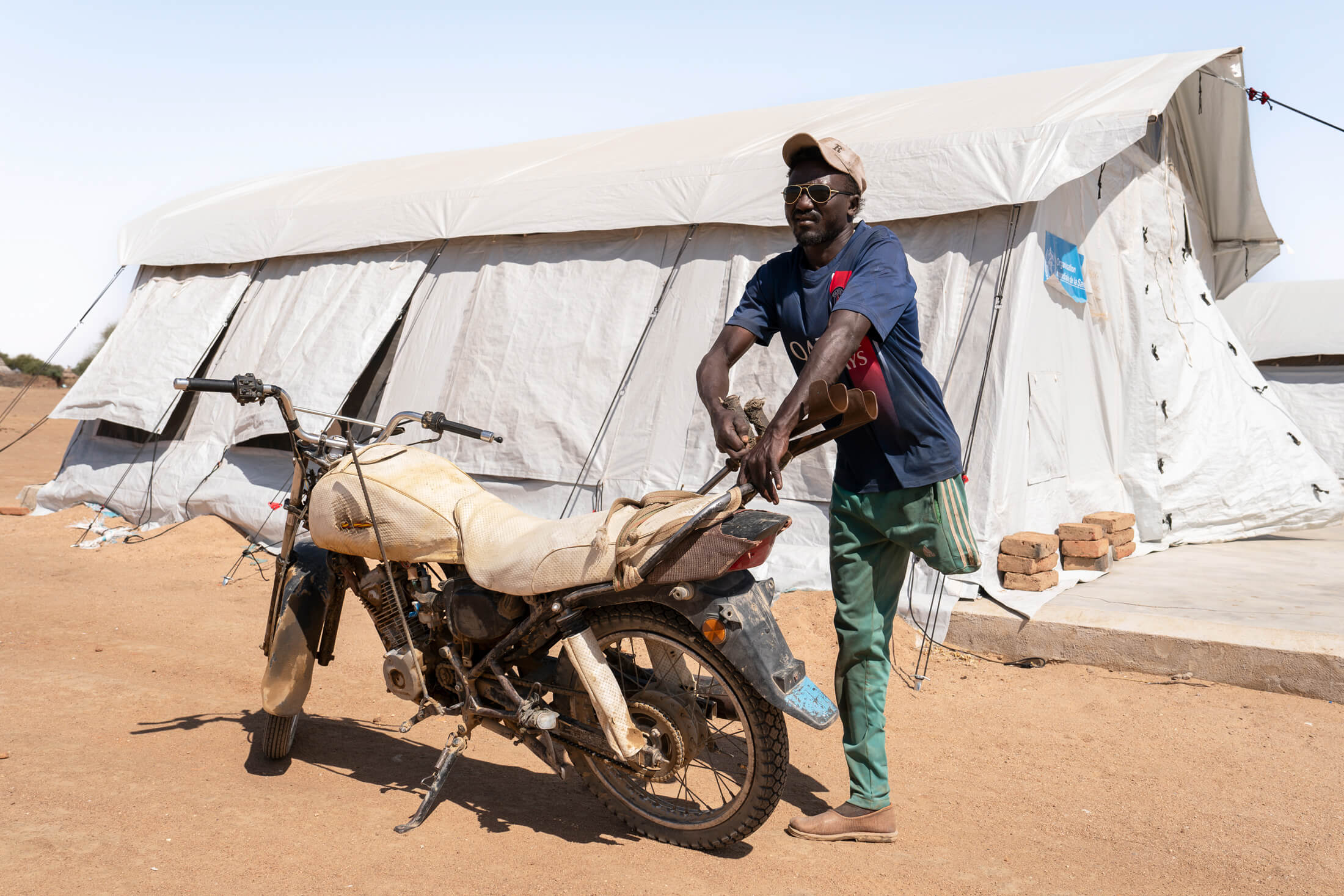
Everywhere familiar to Aziber was too dangerous to stay long. Finally, he decided to head for neighbouring Chad. He walked for days on crutches, hiding every time he encountered others along the way. Aziber describes the danger he faced: “On the road, if soldiers see that you are a man, they kill you,” he says.
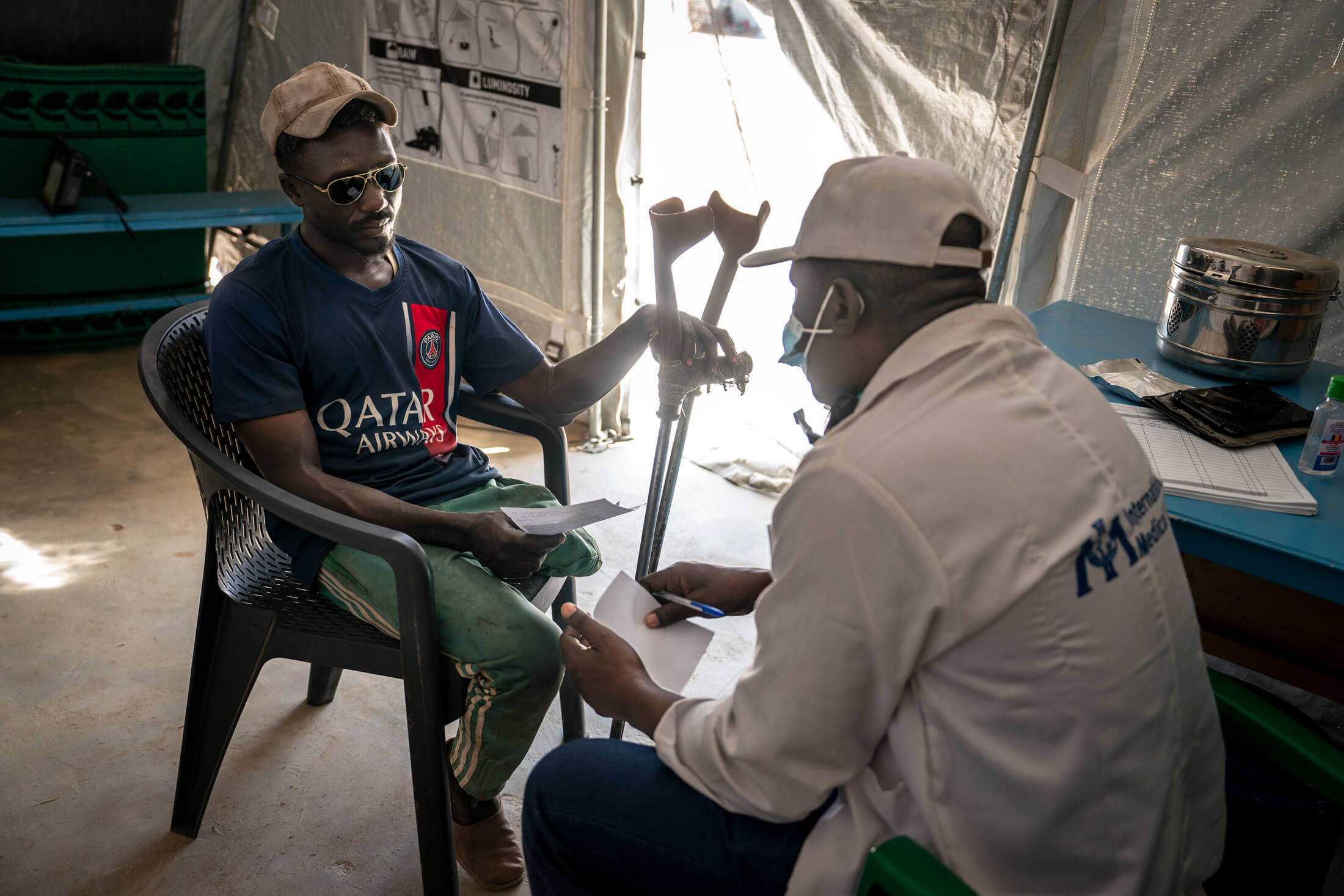
Aziber arrived in Dougui alone, with no knowledge of what happened to the rest of his family. In Sudan, he had worked as a welder. Now, in Dougui, he sells goods in the market and finds occasional welding jobs. His nights are restless, filled with frequent nightmares of the violence he encountered and constant pain in his leg. Our team is working with local partners to get him the care he needs as soon as possible, and is continuing to provide quality medical care as he awaits a transfer to a facility where doctors can correct the problems caused by his hasty amputation.
Bringing New Life
Our teams also are providing essential maternal and newborn care, helping mothers like Hawaa Ibrahim Khamis safely bring new life into the world. Hawaa, a first-time mother, arrived in Chad when she was a child, after fleeing the violence in 2004. She lives in Tredjin refugee camp and works as a farmer near Dougui—which is why she came to our health centre to deliver her first child.


Lifesaving Care
Today, our team in Chad delivers primary healthcare and emergency health services, including medical referrals, to host communities and refugees in Dougui camp—including refugees such as Abdulbassid and Nadia.
Sick with a fever and suffering from abdominal pain, 11-year-old Abdulbassid arrived with members of his family at a health clinic supported by International Medical Corps and was quickly examined. Our doctors soon realised he needed an appendectomy, and provided the medicine and other care he needed while they referred him to the nearby hospital in Metché refugee camp and waited for him to be transferred.



Nadia had been ill for three days when her younger sister, Maha Khatir Ateem, brought her to an International Medical Corps-supported clinic for professional care. The sisters and their family fled South Darfur in December 2024 when an armed group attacked their hometown, and had been living as refugees in Chad since then. Luckily, International Medical Corps-supported staff were able to provide Nadia with the antibiotics she needed.



Through the tireless work of our team in Chad and thanks to our supporters, people fleeing the violence in Sudan are receiving lifesaving care. And in the face of hardship that most of us can only imagine, the people sheltering in Dougui camp continue to persevere with courage, dignity and hope.
